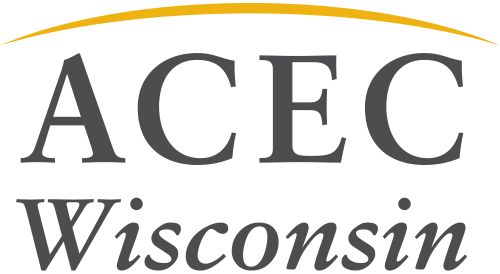Legislation Information on COVID-19
The following information is from ACEC National that has compiled information for firms to consider. Please see the information below and use the hyperlinks to access the handouts:
As we continue to navigate through this new reality we are all trying to keep on top of I wanted to provide some information as it becomes available. A number of Member Firms are seeking guidance on the legal exposures arising from the present COVID-19 public health emergency. Jason Schwartz, a leading employment law attorney and partner with the global law firm of Gibson, Dunn, & Crutcher, has provided ACEC with a useful guide that identifies some of the key considerations for businesses working to reduce the risk of employee exposure.
It's important to keep in mind that the actions of the federal, state, and local governments on the coronavirus pandemic are evolving almost hourly. A short time ago, the White House recommended that Americans avoid gatherings of more than 10 (!) people. We will continue to monitor federal, state, and local health department updates; legislative developments; executive actions; and Department of Labor guidance.
The Gibson, Dunn guidance can be accessed here. Also, below is information on recent federal actions in response to the coronavirus as they may impact our member firms.
Small Business Assistance
As part of the Coronavirus Preparedness and Response Supplemental Appropriations Act of 2020, cleared by Congress the first week of March, SBA can offer qualifying small businesses loans of up to $2 million to pay fixed debts, payroll, and other bills that cannot be paid because of the disaster’s impact. According to the agency, the interest rate is 3.75% for small businesses without credit available elsewhere; businesses with credit available elsewhere are not eligible. The interest rate for non-profits is 2.75%. SBA offers loans with long-term repayments in order to keep payments affordable, up to a maximum of 30 years. Terms are determined on a case-by-case basis, based upon each borrower’s ability to repay. Click below for more information.
Family/Sick Leave and Assistance to Employers
On March 14, 2020, the House passed the Families First Coronavirus Response Act (H.R. 6201) by a vote of 363-40. The House is working on technical corrections that it intends to pass by voice vote as they are not in session this week. Once the House approves the technical fixes, the Senate will consider the legislation this week. There are some concerns among Senators that H.R. 6021 requires employers to provide paid leave up front and then apply for tax credits, which could cause cash flow problems. ACEC is coordinating with other business association stakeholders to look for solutions as lawmakers move forward with this latest legislative response to COVID-19.
Employer-related provisions in the House-passed bill include:
- Testing: Insurers would be required to cover testing for COVID-19 without cost-sharing or prior authorization requirements.
- Emergency paid leave: Private sector employers with fewer than 500 employees and government entities would have to provide 12 weeks of job-protected leave under the Family Medical Leave Act (FMLA) to employees who have to quarantine, care for a family member in quarantine, or care for a child under 18 whose school or day care has closed.
- The first 14 days of leave could be unpaid, although employees could use accrued PTO during this period.
- Following the first 14 days, employees must be paid at least two-thirds of their normal pay.
- DOL would be authorized to exempt businesses with fewer than 50 employees from the paid leave provisions.
- Emergency sick leave: Private sector employers with fewer than 500 employees and government entities would have to provide paid sick leave to self-quarantine, get a diagnosis for COVID-19, or provide care for a family member in quarantine or a child whose school has closed.
- 80 hours of paid sick leave for full-time employees.
- Paid sick leave for part-time employees based on their work hours over a two-week period.
- The emergency sick leave is on top of any other paid leave provided by the employer.
- Employer tax credits: The bill would provide payroll tax credits to employers to cover wages paid while employees are using the emergency paid leave and sick leave established by the legislation.
- Sick leave credit of as much as $511 per day if the employee is caring for themselves, and as much as $200 per day if the employee is caring for a family member.
- Family leave credit of as much as $200 per day, or an aggregate of $10,000.
- Employers could receive the tax credit even if the credit exceeds the amount the employer owes in payroll tax.
More detailed information can be found here. Also, please note that we expect additional congressional assistance packages in the coming days and weeks to respond to specific challenges, and we will keep you posted as these new initiatives develop.
FHWA/State DOT Coordination
ACEC staff participated in a call last week with U.S. DOT representatives and officials from the modal administrations, e.g. FHWA, FTA, FRA. They made clear they are focused on unified federal government response actions to protect at-risk populations, in conjunction with CDC and HHS; state and local transportation agencies should follow guidance from local public health authorities on specific operational guidelines for mitigating the spread of the virus. The modal administrations are tracking the economic impact of the disruptions and providing guidance to their grantees and partners on federal funding eligibility and flexibilities for emergency response costs, operating expenses, etc. Of interest to some ACEC member firms, FHWA is reviewing NEPA regulations to determine whether virtual public meetings can satisfy the existing legal requirements for public engagement.
As always, please let us know what we can do to assist you through this crisis.
